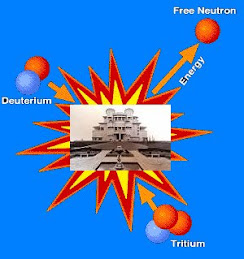Himpunan Guru Fisika Indonesia
Improving The Education of Future Physics & Physical Science Teacher
We understand that the future of both an educated, scientifically literate population, and of physics as a discipline, is dependent on high-quality teachers. Coalition members share innovative ideas, learn from national leaders in the field, and promote awareness of the importance of physics and physical science teacher education efforts. Please consider joining even if your institution is just beginning its work in teacher preparation.
Are Most People Too Dumb for Physics?
Nathaniel Lasry, John Abbot College, Ste. Anne De Bellevue, Quebec
Noah Finkelstein, University of Colorado, Boulder, CO
Eric Mazur, Harvard University, Cambridge, MA
Sobel argues that these students need not “do” physics because “they are not likely to face this kind of problem-solving challenge in their future.” Sobel proposes a “middle way between the traditional physics course and the conceptual course” that “avoids the shallowness of conceptual physics, yet lies within the capability of the average student.” This middle way “does not demand ingenuity,” it “does not demand that the student put together two ideas that he has previously used separately,” and “does not demand that the student be clever.” Students “are not expected to figure out for themselves how to work [a] problem, how to convert from the words to [an] equation, how to go from diagrams to vector components, etc.”
Instead, Sobel suggests that students should learn physics as historical narratives. Each semester, students would be presented with three or four physics “stories,” each story being associated with one or more equations. For each story, a “student sees a certain problem done in class, then tries three or four examples of the same problem, with different numbers, at home, and later has to do one on the exam.” Learning physics, the author argues, is becoming familiar with this computational process. Students, he concludes, “don’t have to be clever; they just have to be industrious.” We disagree, both about students and about learning physics.
Sobel’s piece is of importance because many of his claims are frequently heard in informal contexts:
between teachers in hallways or during departmental meetings. Although widespread, these claims have generally not appeared in the literature. We offer this response as a means to initiate a dialogue on how we engage with students in our physics courses.
We focus on three frequent claims that Sobel’s “middle way” is based on:
Claim 1: Difficulty
Physics is too difficult for the “average” student.
Claim 2: Relevance
Nonscience students don’t need to “do” physics
because they “are not likely to face this kind of
problem-solving challenge in their future.”
Claim 3: Conceptual physics is shallow
Concepts are too easy and don’t help students solve
problems.





Tidak ada komentar:
Posting Komentar